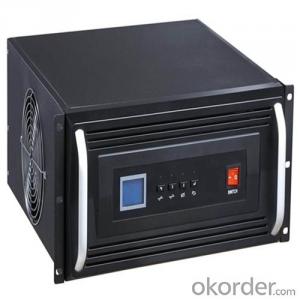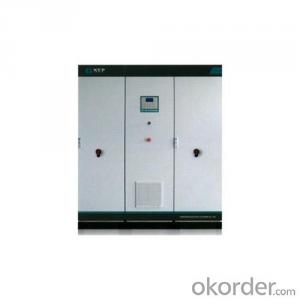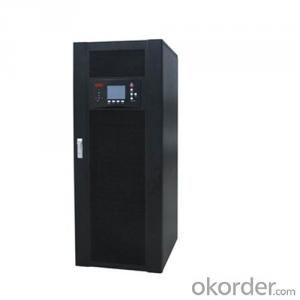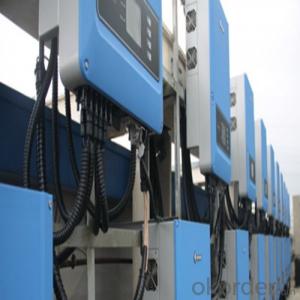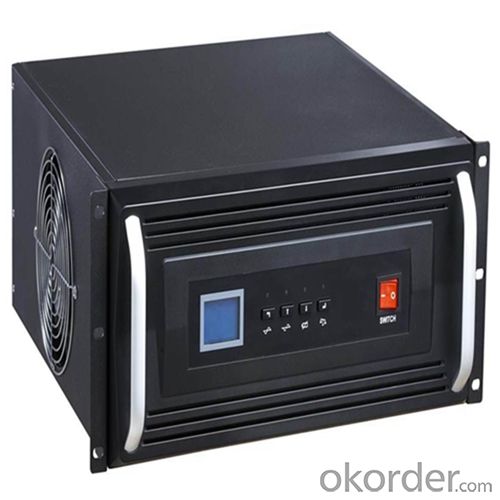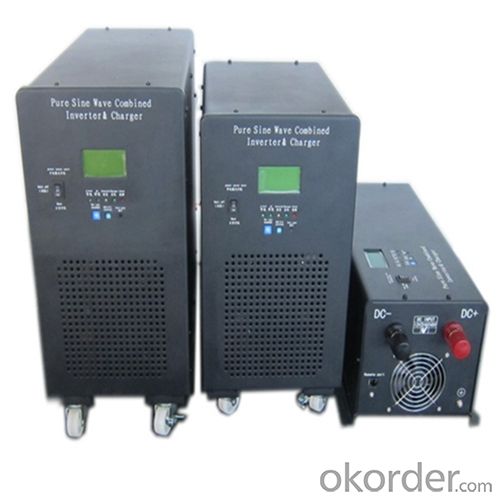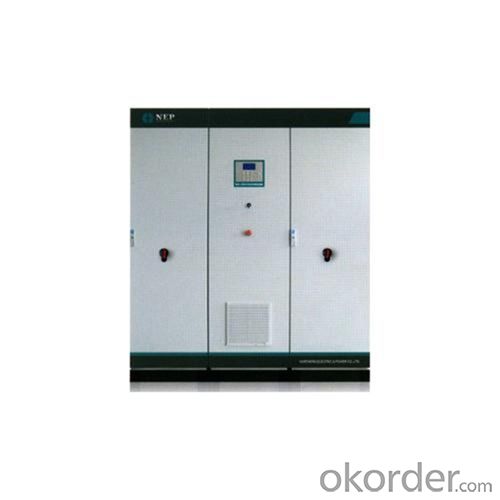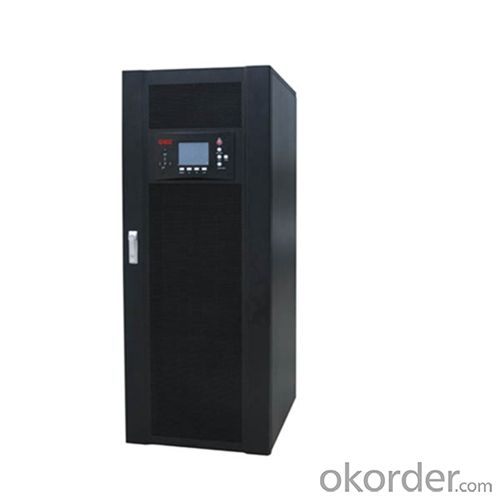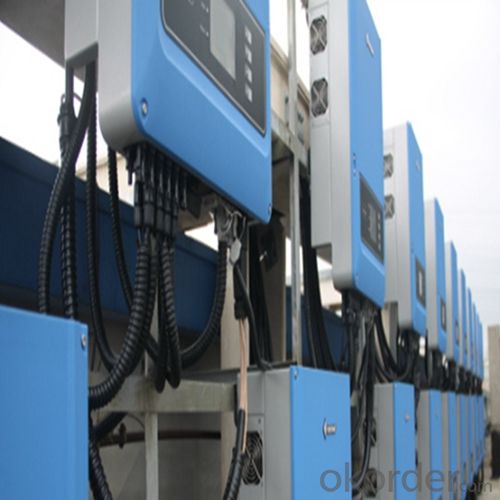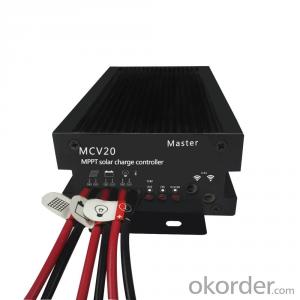Xantrex Solar Inverter - Approved MPPT Solar Charger 3000W 24V
- Loading Port:
- Shanghai
- Payment Terms:
- TT OR LC
- Min Order Qty:
- 5 pc
- Supply Capability:
- 3000 pc/month
OKorder Service Pledge
OKorder Financial Service
You Might Also Like
Performance Characteristics
· 1. Suitable for all electrical equipments
· 2. Large LCD display for more detailed content
· 3. CPU controlled; fast transfer time
· 4. Intelligent battery management, prolonging the service life of the battery
· 5. Complete protection function, high reliability
· 6. Can provide high current charge
· 7. Can match different types of batteries
· 8. Disassembled LCD box which can make the operation in a distance of 15 meters
Product introduction
EP series is sine wave low frequency inverter, which is specifically designed for home appliances. It is equipped with a big LCD screen so all information is displayed in detail, which makes it more convenient to use. Charging current of the inverter is adjustable from 5A to 45A and you can also select different charging voltage to charge different types of batteries so batteries are under great protection.
Our Service
Samples
Samples are Available for Testing and Market Test.
Warranty
We provides warranty against defects in materials and workmanship for its Uninterruptible power supply, Power inverter/chargers including inverter12v 24v 48V, Solar charge controllers (“Product”).
OEM Service
OEM service is strictly based on the ISO9001 ISO14001 quality assurance system. The TOP involves the effective teamwork of departments from Sales, R&D, and Engineering, purchasing, production & QA, assuring a high quality product and prompt delivery for customers. The standardization of our quality system and the quality stability has earned us the trust of our customers for 12 years.
We have 10 sets of automatic insertion equipments, ICT PCB testing equipments, ATE automatic testing center and aging workshop for all products. Monthly output of UPS series exceeds 200,000. We have been offering OEM service for over 12 years.
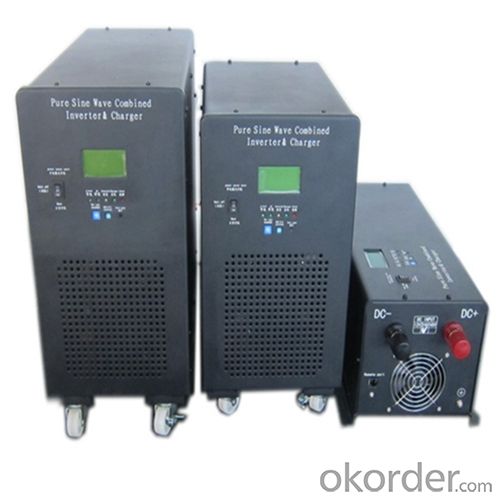
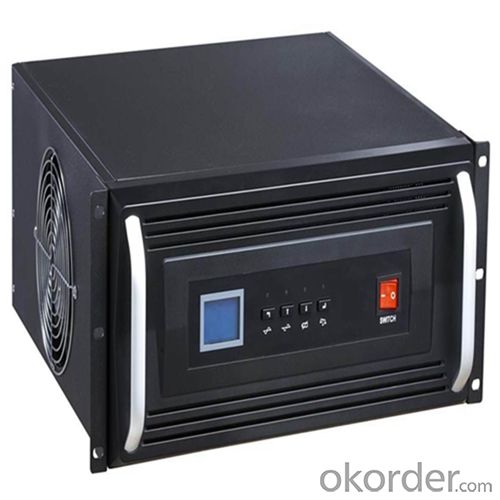
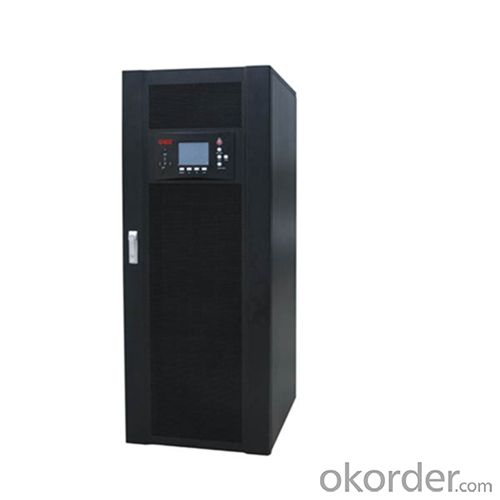
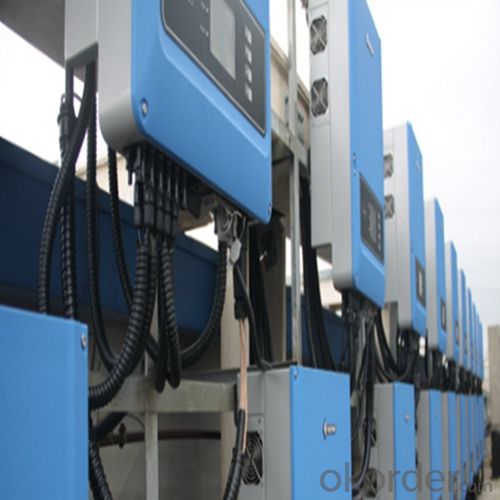
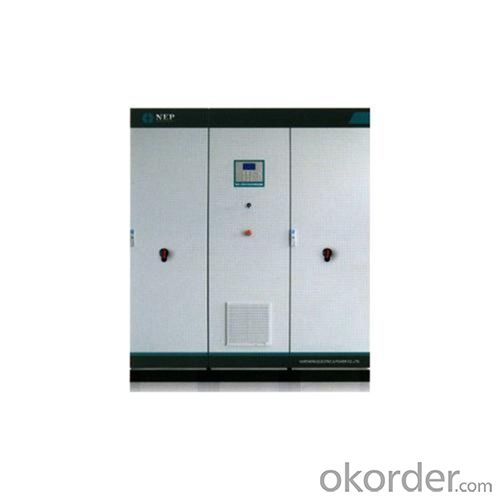
Specifications
Input | |
Input Voltage Range | 182-265VAC |
Output | |
Input Voltage Range | Batt.Mode:50±0.3Hz Mode:48-54Hz(50Hz) or 58-64Hz,Same as AC |
Output Wave Form | Sine Wave (Batt,mode) |
Transfer Time | 10ms(Typical) |
FAQ:
Q: Do you have the CE, TUV, UL Certification?
A: We’ve already passed all the tests, and any certificate is available.
Q: Have you ever sold your products to companies in my country?
A: Of course, we have customers in all general PV markets, but I think we should expand our market share along with the market growth.
Q: When did your company set up? You are a new company, how can I believe your quality?
A: We entered into Solar PV industry in 2005, now we have several plants in manufacturing of a-Si and c-Si panels, and our capacity is 220MW per year. Till now we have already passed all the tests by authorized laboratories, e.g. TUV, CE, UL.
Q: Can you help us install the module if we cooperate with you?
A: We haven’t entered into installation sector, but we have the plan in near future.
Q: How do you pack your products?
A: We have rich experience on how to pack the panels to make sure the safety on shipment when it arrives at the destination.
Q: Can you do OEM for us?
A: Yes, we can.
Q: Can we visit your factory?
A: Surely, I will arrange the trip basing on your business schedule.
- Q: Can a solar inverter be used with a solar-powered irrigation system?
- Yes, a solar inverter can be used with a solar-powered irrigation system. The solar inverter is responsible for converting the DC power generated by the solar panels into AC power, which can then be utilized to power the irrigation system. This allows for efficient and sustainable water distribution in agricultural fields through the use of solar energy.
- Q: What is the difference between a string inverter and a micro inverter?
- A string inverter is a type of inverter that is connected to a string of solar panels, converting the DC power generated by the panels into AC power for use in the electrical grid. On the other hand, a micro inverter is a smaller and individual inverter that is attached to each solar panel, converting the DC power directly at the panel level. The main difference between the two is that a string inverter operates at the string level, which means if one panel in the string is affected by shade or malfunction, the entire string's performance is affected. In contrast, with micro inverters, each panel operates independently, allowing for higher energy production and better performance in situations where panels are subjected to shading or varying conditions.
- Q: Can a solar inverter be used in systems with different module capacities?
- Yes, a solar inverter can be used in systems with different module capacities. Solar inverters are designed to convert the DC power generated by solar modules into AC power for use in homes or businesses. They are typically flexible and compatible with a wide range of module capacities, allowing them to be used in systems with varying sizes and configurations. However, it is important to ensure that the inverter's capacity matches or exceeds the total capacity of the connected solar modules to ensure optimal performance and efficiency.
- Q: Can a solar inverter be used with a solar car charging system?
- Yes, a solar inverter can be used with a solar car charging system. The solar inverter is responsible for converting the direct current (DC) produced by the solar panels into alternating current (AC) that can be used to charge the batteries of a solar car.
- Q: How do you calculate the maximum power point current for a solar inverter?
- To calculate the maximum power point current for a solar inverter, you need to determine the maximum power point voltage (Vmpp) of the solar panel and divide it by the inverter's input impedance. This can be done by using the voltage-current (V-I) curve of the solar panel and locating the point where the product of voltage and current is maximized. By obtaining the Vmpp value, you can then calculate the maximum power point current by dividing it by the inverter's input impedance.
- Q: Can a solar inverter be used in areas with high dust and dirt accumulation?
- Yes, it is possible to use a solar inverter in areas where there is a high accumulation of dust and dirt. However, it is important to take specific precautions and maintenance measures to guarantee its proper operation. Over time, dust and dirt can build up on the surface of the solar panels, causing a decrease in their efficiency. This can also have an impact on the performance of the solar inverter, as it relies on the energy produced by the solar panels. To minimize the impact of dust and dirt, it is essential to regularly clean the solar panels. This can be accomplished by using a gentle brush or sponge along with a mild detergent mixed with water. It is important to avoid using abrasive materials or applying excessive water pressure, as this may cause damage to the panels. Additionally, installing the solar panels at an angle and orienting them towards the sun can aid in reducing the accumulation of dust and dirt. Furthermore, some solar inverters are designed with built-in protection against dust and dirt. These inverters typically have IP65 or higher ratings, which indicates that they are dust-resistant and capable of withstanding water jets. Opting for such inverters can provide an extra layer of protection against the negative effects of dust and dirt accumulation. Overall, while it is possible to use a solar inverter in areas with high dust and dirt accumulation, regular maintenance and proper cleaning of the solar panels are crucial to ensure optimal performance and longevity of the system.
- Q: What is the maximum operating altitude for a solar inverter?
- The maximum operating altitude for a solar inverter typically varies depending on the specific model and manufacturer. However, on average, most solar inverters can operate effectively at altitudes up to 4,000 meters (13,123 feet) above sea level. It is important to consult the manufacturer's specifications or user manual for the precise altitude limitations of a particular solar inverter.
- Q: Can a solar inverter be used in conjunction with a power factor correction device?
- Yes, a solar inverter can be used in conjunction with a power factor correction device. The power factor correction device helps to improve the power factor of the electrical system, ensuring efficient and reliable operation. By installing a power factor correction device in combination with a solar inverter, the overall power quality can be enhanced, leading to optimized energy utilization and reduced electricity costs.
- Q: Can a solar inverter be used with a solar-powered disaster relief system?
- Yes, a solar inverter can be used with a solar-powered disaster relief system. A solar inverter is an essential component of a solar power system, converting the direct current (DC) generated by solar panels into alternating current (AC) that can be used to power electrical devices. In a disaster relief system, solar panels capture sunlight and convert it into electricity, which is then fed into the inverter to produce usable AC power for various relief operations such as lighting, charging devices, or running essential equipment. Thus, a solar inverter is crucial in enabling the functionality and effectiveness of a solar-powered disaster relief system.
- Q: Are there any maintenance requirements for a solar inverter?
- Yes, solar inverters require regular maintenance to ensure optimal performance and longevity. This typically includes cleaning the unit and its surroundings to prevent dust buildup, checking for any loose connections or wiring issues, inspecting for physical damage, and monitoring the inverter's performance through regular system checks. Additionally, firmware updates and software upgrades may be necessary to enhance efficiency and address any potential issues.
Send your message to us
Xantrex Solar Inverter - Approved MPPT Solar Charger 3000W 24V
- Loading Port:
- Shanghai
- Payment Terms:
- TT OR LC
- Min Order Qty:
- 5 pc
- Supply Capability:
- 3000 pc/month
OKorder Service Pledge
OKorder Financial Service
Similar products
Hot products
Hot Searches
Related keywords
